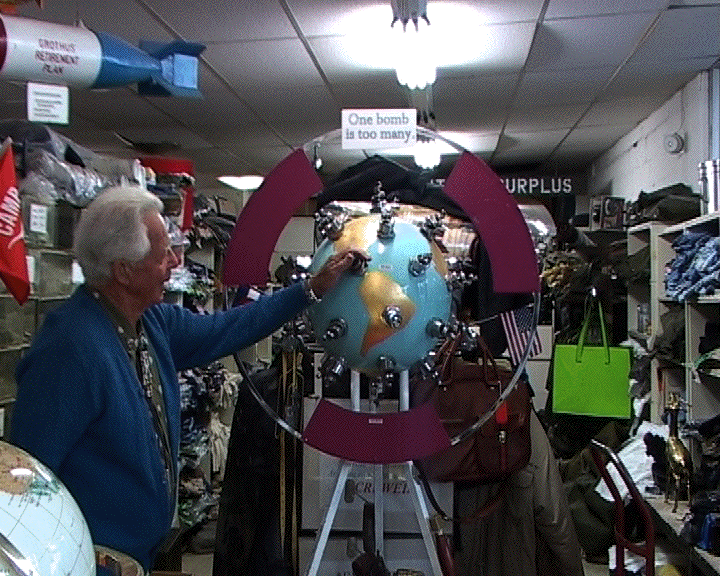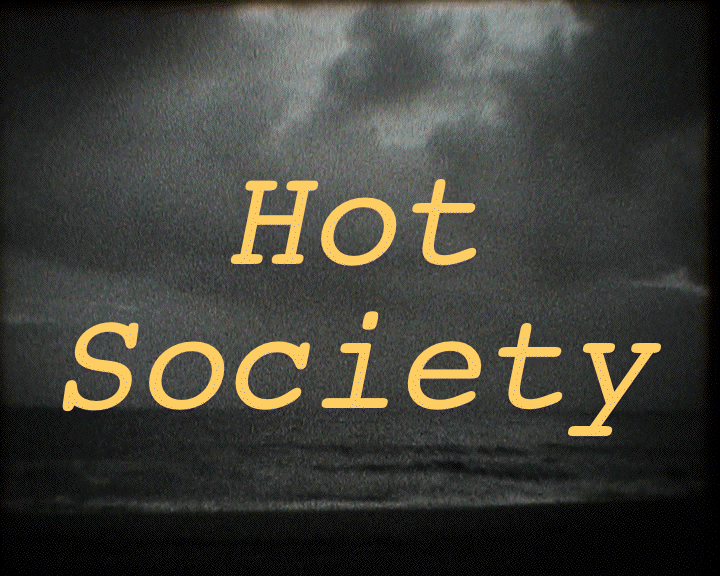Hot Society
Hot Society really is best seen sitting in a comfortable seat in a cinema, if you should watch it on your computer, please bear in mind that the original work was intended for projection and that you are probably missing something.
Hot
Society
revisits the history of the United States in both an oral and visual
form crossing the country from coast to coast on the 36th parallel,
where most of the film was shot.
So many aspects of American
history are linked to movement and to routes, that the lack of
permanence of these corridors is striking.
The other aspect of the
film concerns the constraints and the manipulation of generic codes in
the cinema, which play an essential role in the fabrication of the
mythology of the American psyche and our image of the United States.
This essay tries to find a form for the generic visual codes which
these places produced or reflect in popular media. Those who speak in
the film give an idea of the flexibility of the historical and
political truth of which the are the guardians.
The original reason for using the 36th parallel was that by driving along it at the maximum permitted speed (55 mph) we take in one degree of longitude per hour and therefore 1 minute per minute. It turns out that at this latitude we manage to find a shortened, perhaps selective but certainly representative history, starting from the first (lost) English colony and ending up at Hearst Castle, model for Xanadu in Citizen Kane.
The main ideas that informed the writing and direction of Hot Society centred on the gaps in information and understanding which are integral to the construction of any mythology, and specifically the globalised myth necessary to the United States uf America.
From a cynical point of view, history boils down to a series of events which are linked together retrospectively to form a narrative history, to my surprise this was borne out by the different interviews. The interview subjects, guardians of that history, were conscious of such manipulation, accepting the received truth while at the same time refuting it in their own explanations. One of the difficulties of the project of Hot Society is to find out and reveal what visible form remains of the links between the places and stories which generated the myth and the multiple rereadings of that story resulting in a myth. Are "hard" rereadings, on paper, film or television, those which lead most rapidly to the loss of "reality" and the creation of myths, or is it the oral history still with us that has transformed itself over its own repetitions ?

* The term « hot society » is a reference to the interest that Claude Lévi-Strauss had in the applications of the notion of entropy to societies, dividing them into « cold », non-industrialised or primitive societies, in which almost the entire population has the same status (except for the chief) and the resulting conflict, or entropy, is very low ; and « hot » societies, those which are highly advanced industrially, resulting in very complex social, political and economic structures that produce a great deal, including a great deal of conflict.
Until I find a crock of gold, Hot Society cannot be projected as film
But if you have a DVCam player, a video projector and a comfortable room, then get a crowd of people together to share the cost and rent it.
To do so, please get in touch here, giving the films that you are interested in, the dates of your sceenings, the place to which you require shipping and the format that you can screen the film in.
This is not very difficult to do, I do it all the time for the films that I want to see. You can read the programme notes in texts or at the Work in Progress website (I had better warn you that the notes are in French, the titles are mostly universal).
